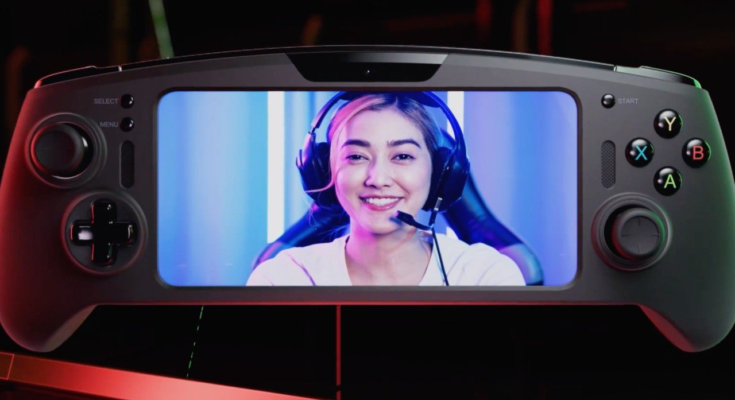In the portable gaming space we have Nintendo with the hugely popular Switch, powered by the ageing but competent NVIDIA Tegra X1, then we have increasingly powerful mobiles and tablets. There are a range of other portable devices that are smaller in scale but promoting powerful technology and concepts (Valve has its Steam Deck on the way), and chip manufacturer Qualcomm is joining that space with hardware producer Razer.
The companies have announced a partnership to produce a Snapdragon G3x ‘developer kit’, which is very much designed as a showcase of the company’s technology and the results it can achieve in the portable gaming space. Justin Cooney, Razer’s director of global partnerships, has stressed that it isn’t a commercial system release, but is strictly for the development industry to see the technology (and concept) in action.
This is not a Razer hardware announcement. The Snapdragon G3x developer kit is a Qualcomm device. Working together with Qualcomm in this collaborative partnership, we aim to bring more publishers and developers to the table and achieve our joint vision for creating the future of portable gaming.
In some respects it’s similar to the approach taken by NVIDIA with its various Shield devices that promoted the Tegra chipset – though they were available for public sale and had a slightly broader emphasis than this Qualcomm device, they were ultimately designed to showcase the technology, which eventually found its mainstream platform in the Switch.
Qualcomm already produces a good percentage of the mobile industry’s most capable and popular chips, so it’s well established in delivering impressive portable performance. The specifications of the developer kit to promote the G3x platform is interesting – the GPU and chipset has support for 5G connections, can output to 4K screens and tether to ‘mixed reality headsets’. The chipset will run Android games but have a notable emphasis on streaming games from PC / consoles and indeed cloud services.

It’s an interesting move, all told, and adds another competitor into the space that NVIDIA has arguably dominated for a number of years – heavily boosted by the Switch of course. It also goes without saying that should Nintendo decide to stick with the ‘hybrid console’ approach it’ll continually monitor chip and GPU options on the market. Only time will tell whether Nintendo sticks to that model, continues to partner with NVIDIA or ultimately goes a different way.
Either way, it’s clear that portable gaming remains a hot space in the market, with Nintendo undoubtedly doing a great deal to make that happen in recent years.




